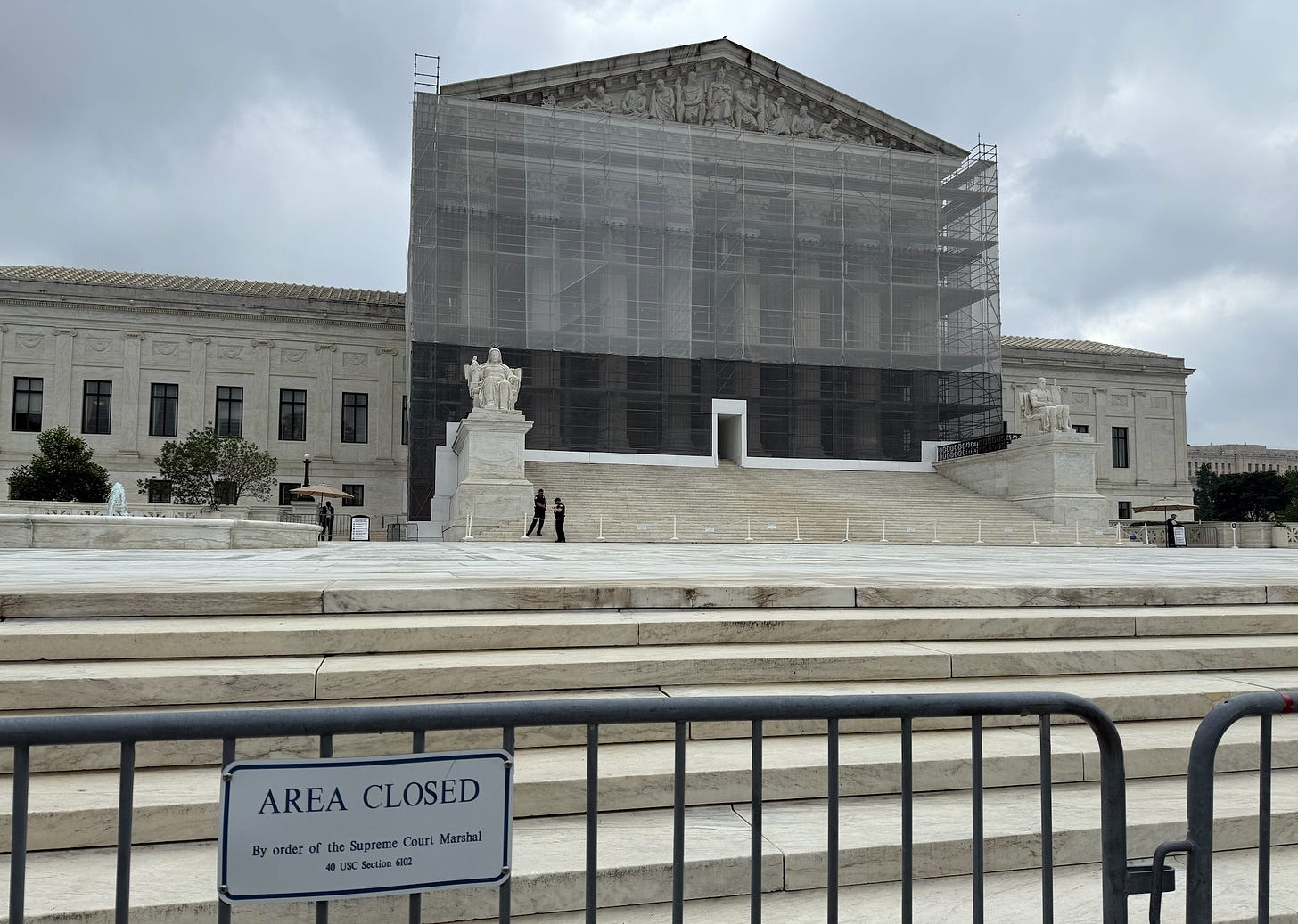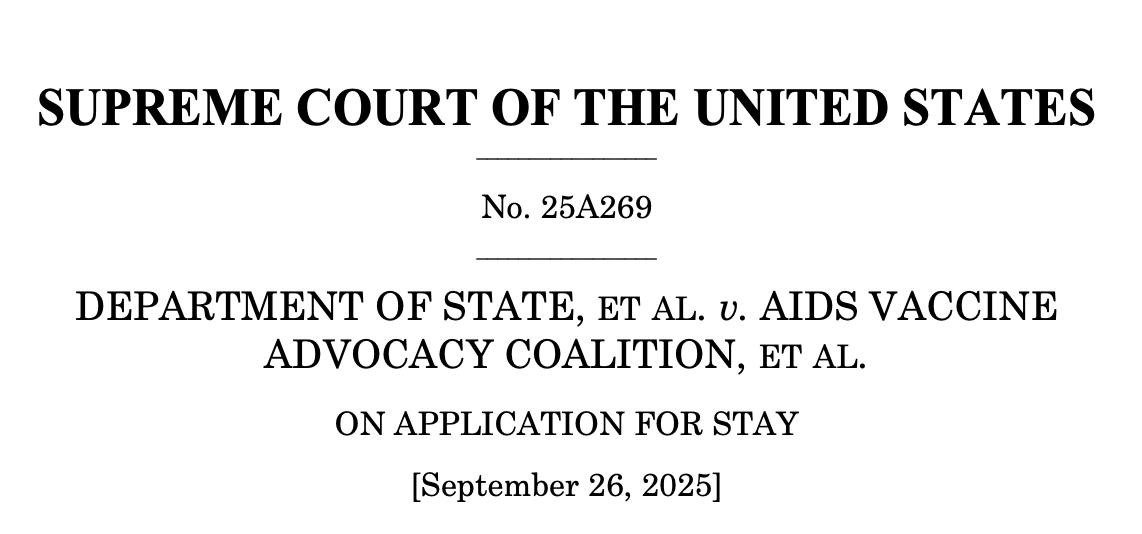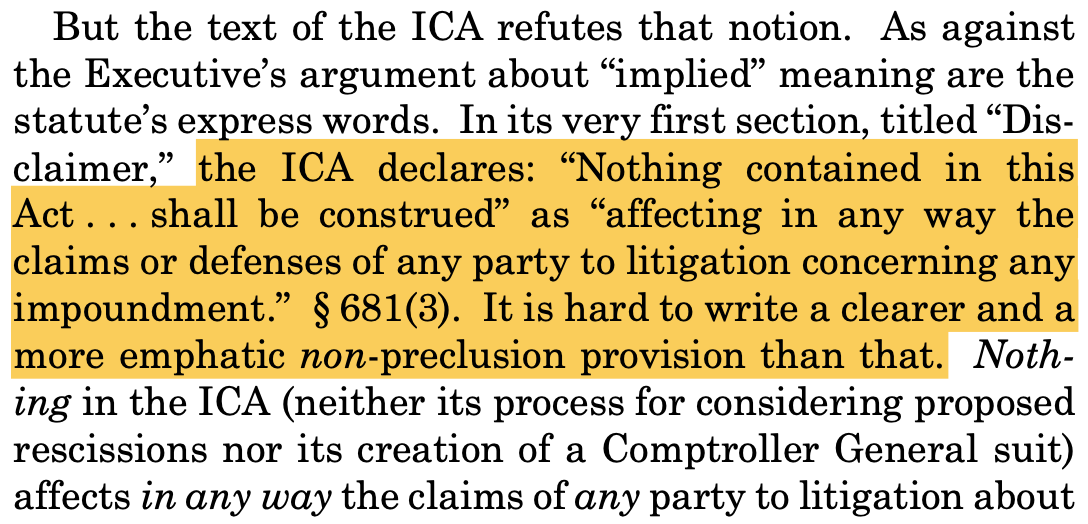SCOTUS's Republican appointees let Trump ignore Congress, cut foreign aid
Justice Kagan, dissenting for the Democratic appointees, noted the majority's "preliminary" order means $4 billion in aid allotted by Congress will be blocked "for all time.“
The U.S. Supreme Court’s Republican appointees on Friday issued an order allowing President Donald Trump to unilaterally hold back $4 billion in foreign aid funding — overturning the decision of Congress that was previously signed into law.
It was a ruling that required a willful disregard for some of the most fundamental understandings of America’s federal government — and prompted a sharp dissent from the Democratic appointees.
The shadow docket ruling addressed $4 billion in funds that Trump has asked Congress to rescind under a provision in another law, the Impoundment Control Act. Congress has not acted on that, however, meaning the administration is still obligated to spend the money.
The unsigned order from the Supreme Court on Friday nonetheless blocked a lower court’s order that would have required the Trump administration to spend the money by September 30, when that funding expires.
As Justice Elena Kagan wrote in dissent for her and Justices Sonia Sotomayor and Ketanji Brown Jackson, “The effect is to prevent the funds from reaching their intended recipients—not just now but (because of their impending expiration) for all time.“
There is no justification for the Republican-appointee majority’s decision — which itself came 17 days after Chief Justice John Roberts granted the Trump administration an “administrative” stay in the case. Roberts’s “administrative” stay blocked the district court’s order until the majority could on Friday issue what amounted to five sentences of mostly conclusory reasoning to justify allowing the Trump administration to refuse to spend billions of dollars in foreign aid funding that Congress decided the United States should spend.
On the two primary issues on which the court based its decision — the meaning of the Impoundment Control Act in this case and the so-called “harms” claimed by the administration to justify a stay of the injunction — Kagan meticulously explained why the one-sentence explanations from the majority1 do not even stand up to the slightest bit of scrutiny.
The court’s order states: “The Government, at this early stage, has made a sufficient showing that the Impoundment Control Act precludes respondents’ suit, brought pursuant to the Administrative Procedure Act, to enforce the appropriations at issue here.“
Kagan, in her seven-page dissent, explained why that is obviously not true — both textually and on the most basic review of American history.
As Kagan detailed, “According to the Executive’s application for a stay, that statutory scheme — of the ICA — “‘impliedly preclude[s]’ the plaintiff organizations from bringing an [Administrative Procedure Act] suit to similarly enforce appropriations laws.“
To that, she incredulously responded:
Additionally, she noted, “The ICA emerged against the backdrop of President Nixon’s large-scale efforts to impound appropriated funds, and thus to substitute his own policy priorities for Congress’s.“
At that time, she continued, “suits brought by States, organizations, and individuals—more than 60 of them by Congress’s careful count—put the President on his back foot.” That litigation, she noted, “contributed significantly“ to Nixon backing down.
What happened next?
Congress followed up by enacting the ICA in order to (as its title says) “control” future impoundments. But it is hardly surprising that in so doing Congress disclaimed any intent to interfere with other parties’ suits to enforce appropriations laws. Suits of that kind had helped Congress win its confrontation with the President—and Congress knew could do so again.
A court concluding otherwise is not a court doing law.
Perhaps knowing that, the majority held back on its ruling, insisting that the order “should not be read as a final determination on the merits” and merely “reflects our preliminary view” at this stage of the litigation.
While Kagan noted that she “appreciate[d]” that, I’m not sure I feel the same. Although it seems reasonable — the majority is just stating the procedural reality — it also is a reminder that this is not creating any rule for the future on the merits. In other words, Trump gets to impound $4 billion now but that could change in another case — or, more specifically, with another president.
Then there is the “harm” consideration, which, for other parties, requires a showing of irreparable harm.
The majority’s order on Friday, however, merely stated that, “on the record before the Court, the asserted harms to the Executive’s conduct of foreign affairs appear to outweigh the potential harm faced by respondents.”
That is not harm, let alone irreparable harm. As Kagan detailed — quoting from the Justice Department’s application to the Supreme Court — “the Executive protests, it will have to ‘advocate against its own objectives’—’undermin[ing]’ its real view that the expenditures are ‘contrary to U. S. foreign policy.’”
Should you think that is a reasonable argument, give Kagan a moment to respond:
[T]hat is just the price of living under a Constitution that gives Congress the power to make spending decisions through the enactment of appropriations laws. If those laws require obligation of the money, and if Congress has not by rescission or other action relieved the Executive of that duty, then the Executive must comply. It cannot be heard to complain, as it does here, that the laws clash with the President’s differing view of “American values” and “American interests.” Id., at 34. That inconsistency, in other words, is not a cognizable harm, to be weighed in the equitable balance. It is merely a frustration any President must bear.
It is a simple truism in America about the power of the purse, as fundamental to the federal government’s operation as judicial review.
Unfortunately, as of Friday afternoon, that is not so today.
Not for this president. Not with this court.
Although we technically do not know the vote — it could have been 6-3 or 5-4 — the order sure reads to me like it had the backing of (and was likely written by) Chief Justice John Roberts.







I practiced law in Florida for over forty years. I only filed one Amicus Brief in the United States Supreme Court. Just preparing thar brief I believed I was breathing the rarefied air of the highest federal court in the greatest judicial system in the world. Now reading these recent decisions, especially this order from the “dark docket” where the alleged justices lack the judicial fortitude to sign this preliminary order simply makes me sick. The Supreme Court of the United States continues to open the door to autocracy and fascism ever wider. In complete opposition to the fundamental constitutional principles of separation of powers. And the abject failure to recognize that it is only the Congress of the United States that has the power of the purse. When the President of the United States (“POTUS”)disagrees with an appropriation bill that has been signed into law, the POTUS has no Constitutional authority to affect a secondary veto that is an unconstitutional exercise of executive power. Such an action by the POTUS is not to be supported by the SCOTUS. Instead, the SCOTUS must unanimously rule such attempted exercise of executive privilege is clearly unconstitutional. This action by the SCOTUS presents grounds for impeachment for the justices in the majority and grounds for impeachment against the POTUS. In order to preserve the Constitutional concept of SEPARATION OF POWERS that is the fundamental principle of American Constitutional Law.
Chris, I'm sick.
It is bad enough where they lift a stay or injunction, where harm will be done, to allow the "normal" process to get, a case back to them to request Cert, so they can decide on the merits. Not in the Humphrey's case though. They granted themselves Cert.
This is definitely far more than that. They leave 4 days or the money just goes to Vought.
They are not only defying the separation of powers, Congress' law passed and Congress not acting to relieve the $4B, so they intentionally, like immunity, waited until the last minute, and one business day, to say the law doesn't matter and the Constitution doesn't either.
They can't, but interpret, correct?
What is this they are doing? Rewriting law Congress passed? Amending the Constitution?
The narrative needs to somehow get to what they are doing.
When Trump is threatening PAIN and HARM if the government is shut down we must remind the public (how I haven't figured out) that he got a free $4B thanks to the SCOTUS.
It is more than sickening.
I know this for certain....no one understands the implications when they allow Trump to fire Cook.
Thanks so much for your explanation!